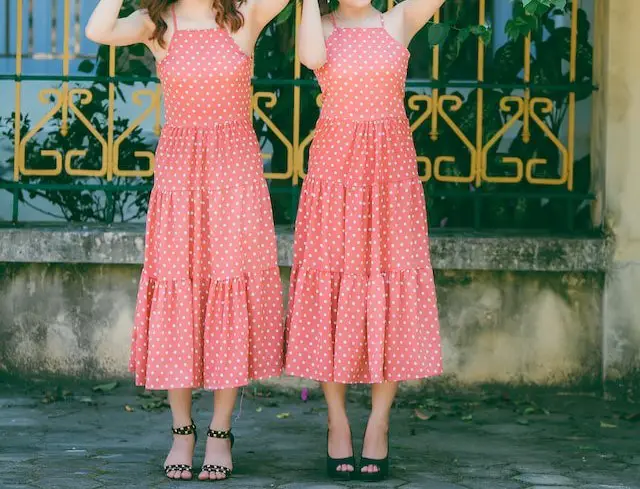Slow fashion is an in-demand response to fast fashion. It is momentous, deliberate, and all-encompassing.
It is also a case for putting a stop to uneconomical production, convoluted supply systems, and baseless consumerism.
Slow fashion is characterised by a focus on quality rather than quantity. The movement strives to develop an enterprise that serves both the environment and all people.
Slow fashion combines a brand’s practices with a customer’s shopping habits.
Slow, morally correct, and sustainable fashion all characterize efforts toward an aspirational goal: rethinking our association with clothes.
Fast fashion conglomerates churn out new designs virtually every week, and just about 1% of all fabrics are turned into new clothes.
Slow fashion, with its slower manufacturing timetables, small-batch collections, and zero-waste designs, turns this model on its head.
Rather than chasing trends, these brands produce timeless and flexible pieces by combining evergreen styles with layering alternatives.
Customers are encouraged to create simple ensembles and invest in items that will last a lifetime.

Low-cost shops frequently employ linen, sustainably – sourced cotton, or Tencel to manufacture durable pieces that are delicate enough to have a low environmental impact.
Slow fashion brands, in addition to caring for the environment through deliberate design, create apparel in-house or locally.
This gives them absolute control over the supply chain network and labour conditions. There’s no need to scale things quickly or design things that will appeal to a large number of people.
A type of innovation has taken by storm the fashion business in the last couple of decades.
A growing amount of firms are rejecting the paragon of fast fashion in favour of a more ecologically friendly approach to clothing production.
Even though demand for slow fashion is increasing, items that are sold under the banner of slow fashion are extremely high-priced.
Quince, an online retailer, is aiming to replace this by enabling consumers to order straight from the manufacturer, which saves money and avoids waste by eliminating many phases in the supply chain.
Is Quince an ethical brand?
Quince does not cut corners when it comes to sustainability or ethical industrial procedures, and the quality of its products speaks for itself.
Quince’s organic cotton is silky and sturdy, and the Mongolian cashmere and baby alpaca wool are as soft and itch-free as you’d expect from a high-end brand.
Quince, in summary, is the real thing, providing consumers with inexpensive ecological and ethical clothes.
However, Quince’s environmental grade is inadequate.
Even though organic cotton is one of the eco-friendly fabrics used, it does not appear to lower its carbon and other greenhouse gases emissions.
Quince does not seem to have taken any significant strides to decrease or completely remove harmful compounds. There is no information that it takes into account water conservation measures.
It does not have a good enough labour rating.

The company does not seem to have a Code of Conduct, but it does have a formal declaration outlining workers’ rights.
The last stage of manufacturing cycle is sourced from countries with an increased risk of labor abuse.
There is no authenticaton that it pays a livable wages to employees in its supplier chain. It traces a portion of its supply chain, as well as the entire final step of production.
Is Quince a reliable company?
Quince sells everything from men’s and women’s clothing and accessories to fine jewellery and home furnishings, giving environmentally conscious shoppers a one-stop shop for convenient online ordering.
The products are long-lasting, which fits with the slow fashion idea of objects being kept for more than a season before being discarded.
Quince’s products are designed to last for ages, making them well worth the price premium over quick fashion alternatives.
Many shoppers, particularly those who value ecological and ethical production processes, will find the pricing to be substantially cheaper than luxury.
However, the company does not have any certificates to prove that their 100% organic long-staple Turkish cotton is indeed organic or free of dangerous chemicals and toxins.
Quince does not have a thorough inventory of all materials used, including what proportion are certified organic or repurposed.
They also do not share just how much of materials are obtained, dyed, tanned, washed, and completed sustainably, and what plans are in place to increase the share.
Is Quince a good website?
On paper, Quince seems to be a good website. They are a direct-to-customer business which means they are not very expensive.
They seem to embody the sustainable fashion brand, by using organic materials and ecologically friendly habits.
Quince claims that shipping straight from the production to consumers reduces carbon emissions.
However, shipping accounts for only a small percentage of a product’s carbon footprint (about 3% on average) and is significantly overshadowed by the impact of manufacturing.
Even for things that may ship straight from the factory to buyers, it is difficult to say if there are any carbon reductions when compared to Quince’s competitors without a complete carbon inventory audit.
Worse, Quince’s individual air-shipping approach could have a higher carbon footprint than standard bulk shipping, which often depends on far less carbon-intensive marine and terrestrial transportation.
Is Quince Oeko Tex certified?
Quince is not Oeko Tex certified.
Quince’s ridiculously low rates, free shipping and returns policy, and misleading environmental promotion merely encourage excessive consumerism, depleting our finite natural resources.

Quince claims to deal with “ethical” factories, and some of its goods are manufactured with natural or upcycled (many without certificates).
Quince claims to cut carbon emissions by sending directly from manufacturers to customers, however the label we studied revealed that things were air freighted from a location far away from the business over the period of a year.
Quince may claim to be a sustainable brand, but it has only sponsored reviews and it is only green-washing its image to promote sales.
